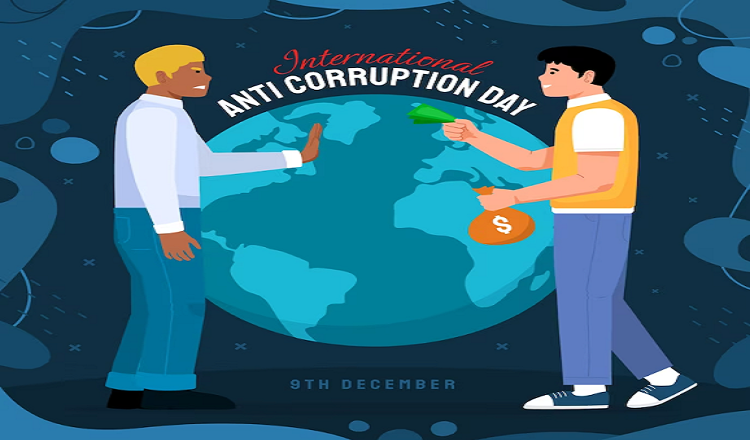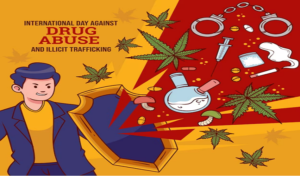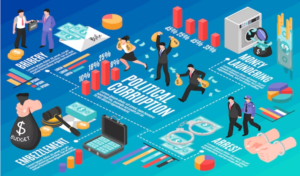The importance of international cooperation in tackling drug trafficking

The United States has a big problem with drug crime, and no single country can solve it on its own. For countries to work together to solve the problem and get rid of it for good, they need to work together on a worldwide level. You can’t say enough about how important it is for countries to work together to stop drug trade. Drug trafficking can have terrible effects on communities, as well as on people, families, and even whole societies.
Organised criminal networks make a lot of money from the drug trade, which feeds corruption, violence, and unrest in countries all over the world. In the U.S., drug trafficking is linked to more crime, drug abuse, and even death. The Centres for Disease Control and Prevention (CDC) says that more than 93,000 people died of drug accidents in 2020. This number shows how bad the problem is and how urgently the world needs to work together to solve it.
This piece will talk about how important it is for countries to work together to stop drug trafficking in the United States. It will look at how big the problem is and talk about how foreign cooperation can help fight drug trafficking. It will also show examples of foreign drug trafficking operations that worked well and point out problems that make it hard for countries to work together. The last part of the piece will talk about the future of international cooperation to stop drug trafficking and why it’s important to keep working on this global problem.
How big the trouble is
Trafficking in drugs is a big problem in the United States, and it has a big effect on American neighbourhoods. Every year, billions of dollars are made from the illegal drug trade, which fuels bloodshed and instability all over the country. The Drug Enforcement Administration (DEA) says that drug crime organisations in the United States make between $19 and $29 billion each year.
The effects of drug trafficking on neighbourhoods in the U.S. are very bad. In the past few years, drug abuse and overdose rates have gone through the roof. Most drug-related deaths are caused by opioids like fentanyl and heroin. Drug trade is not only bad for your health, but it also leads to more crime and gang activity. The damage that comes from drug trafficking, like broken homes, damaged relationships, and economic instability, can last for a long time. To stop drug trade in the US, it’s important to deal with how big the problem is and how it affects American society.
How international cooperation helps fight drug trafficking
Trafficking
In the US fight against drug crime, it is very important to work with other countries. When law enforcement agencies from different countries work together, they can share information, resources, and experience to stop drug trafficking and bring the people who do it to justice. International cooperation can help fight drug trafficking by giving investigators access to information and knowledge that might not be available at home.
The United Nations Office on Drugs and Crime (UNODC) and the foreign Criminal Police Organisation (INTERPOL) are two of the foreign groups that work to stop drug trafficking in the United States. These groups help make it easier for law enforcement agencies around the world to work together and coordinate their efforts. They also give important tools and help to fight drug trafficking. When foreign organisations and law enforcement agencies work together, they can make a big difference in stopping drug trafficking and the damage it does to communities.
Case Studies: International Drug Trafficking That Works
Operations
International drug trafficking operations that go well show how important it is for law enforcement agents to work together across borders. In the past few years, there have been a number of high-profile cases that show how well foreign cooperation works to stop drug trafficking in the United States. Operation Darknet, a joint effort between the DEA and international partners, shut down the notorious Silk Road drug market. Operation Tidal Wave II, a multi-agency effort, stopped a major drug trafficking organisation that worked in the US and Central America.
International cooperation was key to the success of these efforts because it allowed law enforcement agencies to share information, resources, and knowledge. Coordination between agencies made it possible to look into things from every angle, which led to the identification and arrest of key people in drug trafficking activities. These cases show how important it is for countries to work together to stop drug trafficking and how successful future efforts could be if countries keep working together.
Problems that keep countries from working together to fight drugs
Trafficking
Even though it’s good for law enforcement agencies to work together internationally to stop drug crime, there are a few things that can get in the way. Some of these problems are different judicial systems, language barriers, and differences in culture. Also, some countries might not want to work together because of political or international worries.
To get past these problems, it’s important for foreign partners to set up clear ways to talk to each other and build trusting relationships. This can be done by talking to each other often, working together, and sharing what works best. It’s also important to set up clear legal frameworks and standards for international cooperation. This can help make sure that everyone is acting legally. In the end, for international cooperation to be successful in fighting drug trafficking, everyone must be willing to work together in a collaborative and open way.
How countries will work together to fight drugs in the future
Trafficking
The future of international cooperation to stop drug crime in the United States looks good. Changes in technology and international relations are opening up new ways for people to work together. Technology improvements have made it easier for police departments to share information and work together across countries. Also, the creation of new analytical tools and methods has made it easier to find drug trade networks and keep track of them.
International ties are also changing, and more and more people are realising that they need to work together to stop transnational crime. Countries and international organisations are getting more and more willing to work together and share resources and knowledge. With continued attempts to build trust, set up legal frameworks, and use new technologies, there is a good chance that countries can work together to fight drug trafficking effectively.
Conclusion
In conclusion, the US fight against drug crime needs help from all over the world. Law enforcement organisations from different countries can stop drug trafficking and bring traffickers to justice if they work together and share resources. Legal and cultural differences can make it hard for countries to work together well, but these problems can be solved by building trusting relationships and setting up clear legal systems.
Recent successful international actions against drug trafficking show how effective international cooperation can be, but there is still a lot of work to be done. As technology and international relationships change, there are new ways for law enforcement agents to work together better. To stop drug trafficking and the bad things it does to communities, it’s important for everyone to keep putting money into international cooperation and sharing best practises and knowledge.
Because of this, it’s important for politicians, law enforcement agencies, and international organisations to work together to improve the ways they already work together and come up with new ways to help international cooperation in the fight against drug trafficking. By doing this, we can make big steps towards stopping drug trafficking, protecting neighbourhoods, and making sure that everyone has a safer future.
Read More You May Like:








